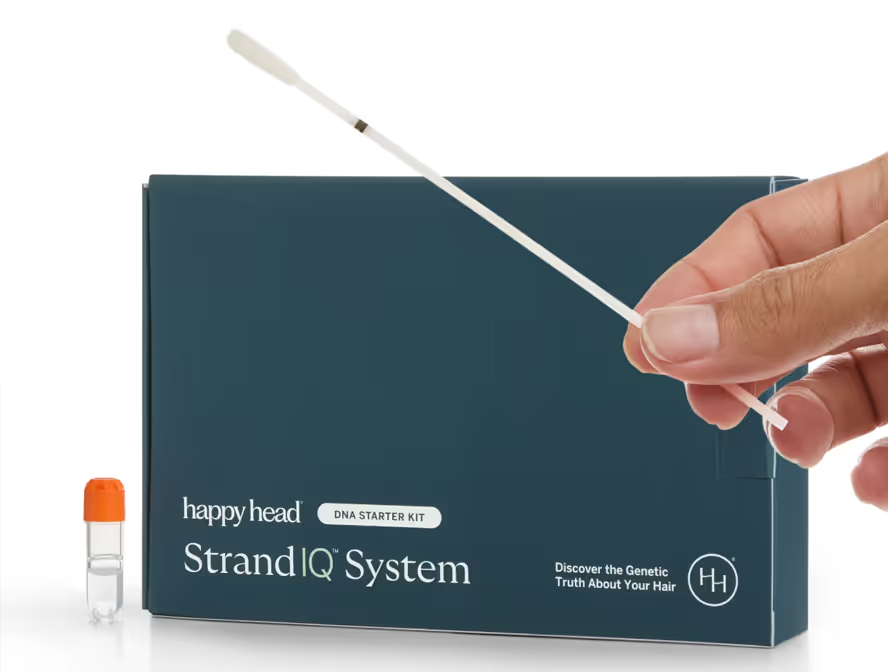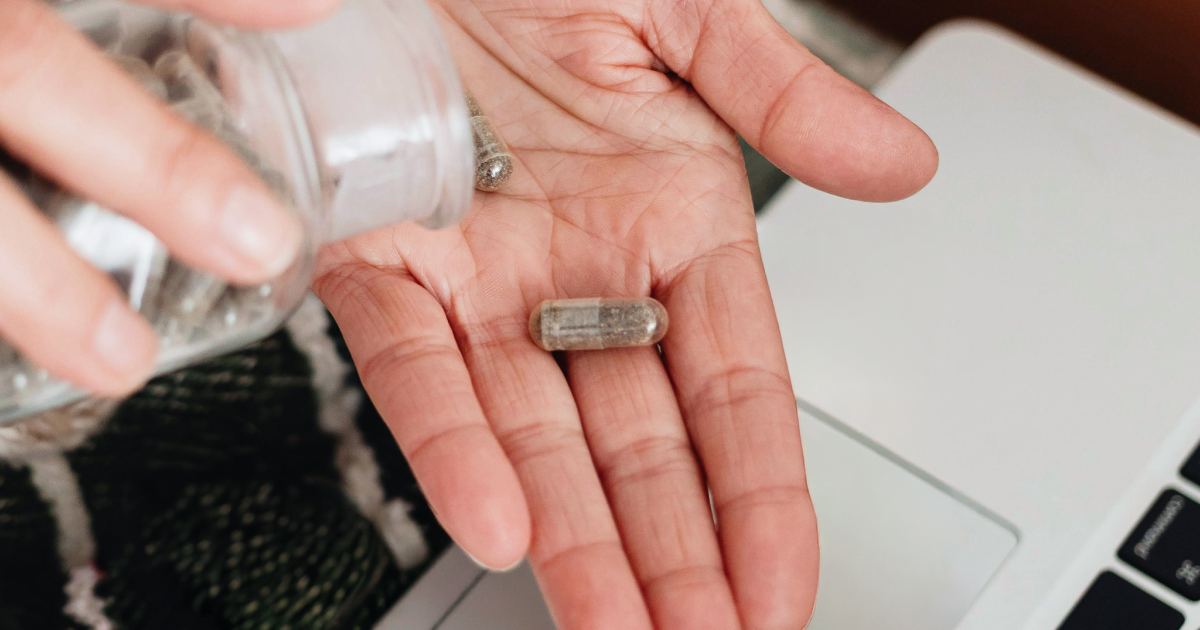The search for the best oil for hair growth can be overwhelming, but the right choice can make a world of difference. The key is to find an oil that suits your specific needs.
Natural oils have been used for centuries to support hair health and growth. These plant-based oils are rich in vitamins, minerals, and fatty acids that can nourish the scalp and hair. Some of the most popular natural oils for hair growth include:
- Coconut oil: Deeply moisturizing and can penetrate the hair shaft to prevent protein loss
- Castor oil: High in ricinoleic acid, which may improve scalp health and circulation
- Jojoba oil: Similar to the scalp's natural sebum, making it an excellent moisturizer
- Argan oil: Rich in vitamin E and antioxidants to protect hair from damage
- Rosemary oil: May stimulate hair growth by improving circulation in the scalp
Learning about these natural hair oils and understanding when more powerful options, such as topical hair loss solutions, are the better choice can help guide your hair care decisions.
What Do Oils Do for Hair?
Natural oils support healthy hair growth in several ways, from nourishing the scalp to protecting the hair shaft. Many oils are rich in essential fatty acids, antioxidants, vitamins (such as E and A), and minerals that help strengthen hair, reduce breakage, and enhance moisture retention.
When applied to the scalp, certain oils can improve circulation, creating a healthier environment for hair follicles and potentially encouraging growth.
Oils also form a protective barrier around the hair shaft, shielding it from damage caused by heat styling, UV exposure, and environmental pollutants.
Some oils have antimicrobial or anti-inflammatory properties that help soothe scalp irritation and reduce dandruff. By sealing moisture into the hair cuticle, oils can smooth frizz, add shine, and prevent dryness—all key factors in maintaining thick, resilient hair.
Comparing Natural Oils for Hair Growth to Proven Solutions
While natural oils offer nourishing and protective benefits for the scalp and hair, they are not clinically proven to regrow hair in the way that medical treatments such as minoxidil, finasteride, dutasteride, or spironolactone are.
Topical minoxidil products work by stimulating hair follicles and prolonging the growth phase, while topical finasteride products and topical dutasteride block DHT, a hormone linked to androgenetic hair loss. Spironolactone topical products, often used in women, also reduce androgen activity.
These medications have been extensively studied and offer measurable results over time.
Natural oils, by contrast, support a healthy scalp environment, boosting circulation, reducing inflammation, and improving moisture balance, but they cannot reverse hormonal or genetic hair loss on their own.
For optimal hair growth, it’s important to combine topical care with internal wellness. A nutrient-rich diet, regular exercise, adequate sleep, and stress management are critical factors.
These lifestyle habits help reduce hair-shedding triggers and support the effectiveness of both natural and medical treatments.
Your best option is to consult a dermatologist for help developing a personalized treatment plan. The experts at Happy Head can review your concerns and medical history online and then create a prescription solution tailored to your exact needs and delivered discreetly to your door.

Best Oils for Hair Growth and Thickness
Finding the best oil for hair growth involves understanding which oils provide the most benefits for your hair type and concerns. The following oils can nourish the scalp, strengthen hair follicles, and promote thicker, healthier hair growth.
1. Rosemary Oil for Hair Growth
Rosemary oil is a popular choice for hair growth due to its ability to stimulate blood circulation in the scalp. This increased blood flow can help deliver more nutrients to the hair follicles to encourage improved hair growth.
Rosemary oil also has antimicrobial properties that can help keep the scalp clean and healthy. Its effectiveness over time has been found to be comparable to that of minoxidil.
2. Peppermint Oil for Improved Hair Follicle Health
Peppermint oil may enhance hair follicle health by increasing circulation to the scalp, creating an invigorating, oxygen-rich environment for follicles.
Its natural menthol content provides a cooling sensation that can soothe inflammation, helping to support healthier hair growth and reduce excessive shedding over time.
3. Tea Tree Oil for Scalp Health
Tea tree oil has powerful antimicrobial and anti-inflammatory properties that can help keep the scalp healthy. It can help combat dandruff, soothe irritation, and unclog hair follicles, creating an optimal environment for hair growth.
Tea tree oil should always be diluted with a carrier oil before use, as it can be irritating when applied directly to the skin.
4. Castor Oil Benefits for Hair
Castor oil is rich in ricinoleic acid, a fatty acid with anti-inflammatory properties. This can help soothe scalp irritation and promote a healthy environment for hair growth. Castor oil is also deeply moisturizing, which can prevent hair breakage and support stronger, thicker hair.
5. Coconut Oil for Stronger Hair
Coconut oil is known for its ability to penetrate the hair shaft, providing deep moisture and preventing protein loss. This can lead to stronger, more resilient hair that is less prone to breakage.
Coconut oil also has antimicrobial properties that can help keep the scalp healthy and free from dandruff.
6. Argan Oil for Hair Health
Argan oil is rich in vitamin E, antioxidants, and essential fatty acids that nourish and protect the hair. It can help smooth the hair cuticle, reducing frizz and enhancing shine. Argan oil is also lightweight, making it an excellent choice for those with fine or oily hair.
7. Jojoba Oil for Scalp and Hair
Jojoba oil closely resembles the scalp's natural sebum, making it an excellent moisturizer for both the scalp and hair. It can help balance oil production, preventing both dryness and oiliness. Jojoba oil is also non-comedogenic, meaning it won't clog pores or contribute to scalp buildup.
8. Olive Oil for Moisture and Growth
Olive oil is packed with vitamins A and E, which are essential for healthy hair growth. It's also deeply moisturizing, helping to prevent dryness and breakage.
Olive oil can be used as a pre-shampoo treatment or added to your favorite hair products for an extra boost of nourishment.
9. Almond Oil for Softer, Thicker Hair
Almond oil is rich in vitamin E, fatty acids, and proteins that can nourish and strengthen the hair. It can help soften and smooth the hair cuticle, reducing frizz and enhancing shine. Almond oil is a lightweight oil, so it’s ideal for fine or oily hair types.
10. Avocado Oil for Nourishing Hair
Avocado oil is packed with vitamins A, B, D, and E, as well as essential fatty acids that nourish and protect the hair.
It can help moisturize and strengthen the hair, preventing breakage and promoting healthier growth. Avocado oil is also rich in antioxidants that can protect the hair from environmental damage.
11. Grapeseed Oil for Lightweight Hydration
Grapeseed oil is a lightweight, non-greasy oil that provides moisture without weighing down the hair. It's rich in vitamin E and linoleic acid, which can help strengthen and nourish the hair.
Grapeseed oil isn’t likely to clog pores, and it is absorbed readily and quickly by the skin to offer fast benefits.

How To Use Oils for Hair Growth
To get the most out of your hair growth oils, it's important to use them correctly. Here are some tips for incorporating oils into your hair care routine:
Scalp Massage With Oils
Massaging your scalp with oil can help stimulate blood flow and promote healthier hair growth. To do a scalp massage, warm a small amount of oil in your hands and gently massage it into your scalp using circular motions.
Focus on areas where your hair is thinning or where you'd like to see more growth. Leave the oil on for at least 30 minutes or overnight for deeper conditioning.
Mixing Oils and Carrier Oils
If you're using essential oils such as rosemary or tea tree, it's important to dilute them with a carrier oil before applying them to your scalp.
Carrier oils such as coconut, jojoba, or almond oil can help reduce the potency of essential oils, preventing irritation. Mix a few drops of essential oil with a tablespoon of carrier oil before applying to your scalp.
Using Oils as Part of Your Hair Care Routine
Oils can be used in a variety of ways as part of your regular hair care routine. You can use them as a pre-shampoo treatment, applying them to your hair and scalp 30 minutes to an hour before washing.
You can also add a few drops of oil to your shampoo or conditioner for an extra boost of nourishment. Some people like to use oils as a leave-in treatment, applying a small amount to the ends of their hair to prevent dryness and breakage.
Frequency and Application Tips
How often you use hair growth oils will depend on your hair type and concerns. If you have dry or damaged hair, you may benefit from using oils more frequently, such as 2–3 times per week.
If you have oily or fine hair, you may want to use oils less often to avoid weighing down your hair. When applying oils, be sure to focus on your scalp and the ends of your hair, as these are the areas that tend to be the driest and most prone to damage.
Choosing the Best Oil for Your Hair Type
When choosing the best oil for your hair growth needs, it's important to consider your hair type and texture.
If you have curly, coily, or kinky hair, you may benefit from heavier, more moisturizing oils such as coconut, castor, or avocado oil. These oils can help deeply condition your hair, preventing dryness and breakage. They can also help define your curls and reduce frizz.
If you have fine or straight hair, you may want to choose lighter oils such as jojoba, argan, or grapeseed oil. These oils can provide moisture without weighing down your hair or making it look greasy. They can also help add shine and smoothness to your hair.
If you have damaged or color-treated hair, you may benefit from oils that are rich in antioxidants and vitamins, such as argan, almond, or olive oil.
These oils can help protect your hair from further damage and nourish it back to health. They can also help extend the life of your color and prevent fading.
What To Look for When Buying Hair Growth Oils
When shopping for hair growth oils, there are a few key things to look for to ensure you're getting a high-quality product.
Ingredients and Purity
Look for oils that are pure and unrefined, as these will have the most nutrients and benefits for your hair.
Avoid oils that contain added fragrances, colors, or preservatives, as these can be irritating to the scalp and may not be as effective for hair growth. If you're using essential oils, look for ones that are therapeutic grade and come from a reputable source.
Avoiding Harmful Additives
Some hair growth products may contain harmful additives such as sulfates, parabens, or silicones. These ingredients can be drying and damaging to the hair and may actually hinder hair growth.
Look for oils that are free from these additives and instead contain natural, nourishing ingredients.
Reading Product Labels
Always read the labels on hair growth products carefully to ensure you're getting a high-quality oil that is suitable for your hair type and concerns.
Look for oils that are specifically marketed for hair growth and that contain ingredients such as rosemary, castor, or coconut oil. If you have any allergies or sensitivities, be sure to check the label for potential irritants.
Possible Side Effects and Safety Tips
While natural oils are generally safe for most people, there are a few potential side effects and safety tips to keep in mind. Some people may be sensitive or allergic to certain oils, particularly tea tree or peppermint essential oils.
If you have sensitive skin or are prone to allergies, it's a good idea to do a patch test before using a new oil on your scalp. Apply a small amount of the oil to a small area of skin, such as your inner arm, and wait 24 hours to see if any irritation or redness occurs.
Even if you don't have sensitive skin, it's still a good idea to do a patch test before using a new oil on your entire scalp. This can help you gauge how your skin will react and ensure that you don't experience any adverse effects.
If you do experience any irritation, redness, or itching after using an oil, discontinue use immediately and consult with a dermatologist if symptoms persist.
Regrow Hair Naturally With the Best Oil for Hair Growth
Choosing to use natural oils for hair growth is about more than following a trend—it's a commitment to nurturing your scalp and hair in a gentle, holistic way.
While oils won’t replace the power of prescription treatments for hormone-related hair loss, they can help improve scalp health, reduce breakage, and enhance shine and thickness.
Whatever treatment you choose, the key is knowing your hair type, understanding what your scalp needs, and setting realistic expectations.
With time and consistent use, you can achieve the luscious, healthy hair you've always wanted. In the end, the best oil for hair growth is the one that works for your unique needs and goals.
Talk to a board-certified dermatologist to discuss your goals and find the solution that is best for you.
Frequently Asked Questions
Which essential oil is the best for hair growth?
Rosemary oil is often considered the best essential oil for hair growth. It is believed to stimulate blood circulation to the scalp as effectively as minoxidil, potentially promoting thicker hair and reducing shedding when used regularly and correctly.
Do oils actually work for hair growth?
Some oils, especially rosemary, peppermint, and castor oil, may support hair growth by improving scalp health, reducing inflammation, and increasing circulation. However, results vary. Natural oils are more effective as part of a comprehensive hair care routine rather than a standalone solution.
Is it possible to regrow hair with oil?
Hair regrowth with oil is possible in cases of temporary hair loss, such as from stress or poor scalp health. Oils can nourish the scalp and support hair follicles, but they are less effective for genetic or hormone-related hair loss without medical treatments.
Does rosemary oil regrow hair?
Yes, rosemary oil can potentially regrow hair, particularly in cases of early hair thinning or androgenetic alopecia. It can increase blood flow to hair follicles and reduce inflammation, but consistent use over several months is typically required.












